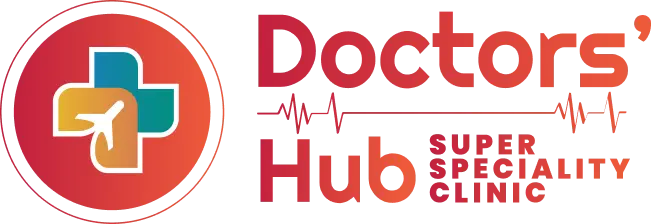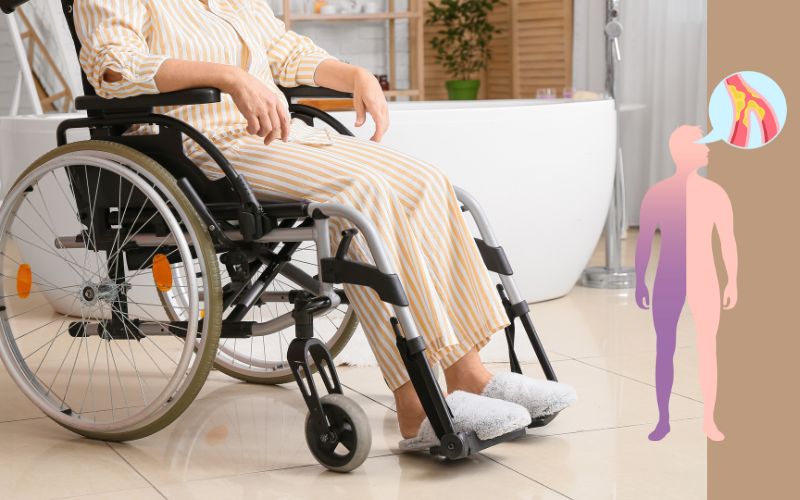Paralysis is the loss of muscle function. It affects one part or a large area of your body. It often follows a stroke. It follows a spinal cord injury. It follows other neurological events. Experiencing paralysis is a life-altering event. The body needs specialized help to recover. The brain must learn to communicate again. Physiotherapy for paralysis is the most vital step in the recovery journey. It helps your body regain function. It promotes recovery from paralysis.
The human body is amazing. The brain has an ability called neuroplasticity. This allows it to rewire its connections. Paralysis physiotherapy in Dwarka and other expert centers focuses on using this ability. Therapists use targeted, intensive exercises. These exercises stimulate the nerves. They strengthen the surviving muscles. The goal is not just standing. The goal is full functional independence. The choice of a specialized Physiotherapy clinic in Delhi greatly affects the speed of recovery
Recovery from Paralysis with Physiotherapy
Physiotherapy for paralysis is based on a deep understanding of neurology. It uses principles to force the nervous system to adapt.
Neuroplasticity and Functional Movement
- Rewiring the Brain: The brain is highly adaptable. Repeated, targeted movements force the brain. They force it to create new pathways. This bypasses the damaged area.
- Intensive Practice: High-repetition, meaningful tasks are key. The patient practices tasks like reaching. They practice grasping. This reinforces the new neural connections.
- Spinal Cord Activation: Even with spinal cord injury. The nerves below the injury can be stimulated. This promotes some movement.
This science ensures recovery from paralysis is maximized.
Immediate Physical Therapy to Prevent Secondary Issues in Paralysis
Right after the injury, the patient needs immediate physiotherapy. This initial phase prevents complications. These complications slow down long-term recovery.
Critical Early Care
- Passive Range of Motion (PROM): The therapist moves the paralyzed joints. This prevents them from becoming stiff. It keeps the joint tissues healthy.
- Splinting and Positioning: Limbs are carefully positioned. They are often held with splints. This prevents contractures. Contractures are permanent shortening of muscles.
- Circulation Management: Lack of movement causes poor blood flow. Therapists encourage circulation it prevents dangerous blood clots
A dedicated Paralysis physiotherapy clinic Delhi manages this delicate starting period. They lay the groundwork for major functional gains.
Techniques of Recovery: Core Physiotherapy for Paralysis in Dlehi NCR
Modern physiotherapy uses several highly effective and specialized methods. These methods target specific needs of paralysis patients.
Body Weight Support Treadmill Training (BWSTT)
This technique helps patients relearn walking. It is great for lower body paralysis.
- How It Works: The patient walk on a treadmill. A harness supports their body weight. And the therapist assists the patient’s legs. This simulates normal walking.
- Benefit: It helps the patient practice normal steps. The support prevents falls. This allows the patient to focus on the movement itself.
Constraint-Induced Movement Therapy (CIMT)
This is very effective for one-sided paralysis. It forces the brain to use the weak side.
- The Method: The stronger, non-paralyzed arm is restrained. The patient must use the weaker, paralyzed arm.
- Benefit: This forces the brain to rewire itself. It boosts the function of the paralyzed limb. It is intense, focused work.
The experts at a quality Physiotherapy specialist in Delhi center know when to use these advanced techniques.
Balance and Gait Training Physiotherapy Delhi NCR
Regaining strength is one thing. Learning to move safely is another. Balance and gait training are critical steps. They define functional recovery from paralysis.
Re-Learning to Stand and Walk
- Balance Work: Therapists challenge the patient’s balance. They use uneven surfaces. They use activities that require shifting weight. This improves core stability.
- Gait Training: This involves teaching the correct walking pattern. It focuses on foot placement. It focuses on rhythm. It focuses on coordination.
The intensity of Paralysis physiotherapy in Dwarka is key. Consistent, daily practice speeds up the entire process.
Physiotherapy for Sensory Retraining and Nerve Connection
Paralysis often comes with loss of sensation. The body cannot feel touch or temperature. Sensory retraining is an important, often overlooked part of paralysis physiotherapy.
Techniques to Restore Feeling
- Tactile Stimulation: The therapist applies different textures. They use hot and cold objects. They do this to the paralyzed skin. This helps the brain recognize the sensations again.
- Mirror Therapy: This is a fascinating technique. The patient watches their intact limb move in a mirror. The mirror makes it look like the paralyzed limb is moving. This tricks the brain. It helps re-establish the connection.
A complete program in a Paralysis physiotherapy clinic Delhi includes this work. It addresses both movement and sensation
Adaptive Tools and Technology in Modern Therapy
Modern physiotherapy uses innovative technology. These tools enhance the intensity of the treatment. They accelerate the recovery from paralysis.
Advanced Rehabilitation Aids
- Functional Electrical Stimulation (FES): Small electrical currents stimulate muscles. This causes them to contract. FES helps patients lift a dropped foot. It helps them grasp objects
- Robotics: Robotic exoskeletons. They help severely paralyzed patients stand. They help them walk. This provides crucial repetitive training
- Virtual Reality (VR): VR systems engage patients. They make exercises fun. They make them highly interactive. This increases patient motivation.
These high-tech methods are often found in leading centers. Centers offering top Physiotherapy in Gurgaon are adopting them.
The Patient’s Role: Consistency and Dedication
The Physiotherapy specialist in Delhi is the guide. The patient is the active participant. Consistent effort outside the clinic is absolutely necessary.
- Home Exercise Program (HEP): The patient must perform exercises daily. This maintains the gains made in the clinic
- Family Support: The family plays a critical role. They assist with exercises. They provide emotional encouragement
- Goal Setting: Setting small, achievable goals. Goals like eating with a fork. Goals like walking to the kitchen. This keeps motivation high.
Paralysis presents a monumental challenge. But it does not have to be the end of movement. Intensive and specialized Physiotherapy for paralysis offers real hope. It leads to fast and meaningful recovery. The key is seeking expert care quickly
Doctor’s Hub is a leading Paralysis physiotherapy clinic Delhi. We specialize in neurological rehabilitation. Whether you seek advanced Physiotherapy in Delhi NCR or a trusted Physiotherapy centre in Dwarka Doctor’s Hub provides specialized care. We guide you every step. We help you achieve the fastest, fullest recovery from paralysis.
FAQs
It must begin almost immediately. This is true once the patient is medically stable. Early intervention gives the best chance. This is because the brain is most ready to rewire.
Full recovery is not always guaranteed. But significant functional gains are common. Physiotherapy maximizes the person’s potential, it gives them independence
Yes it works for both. The methods differ. Stroke recovery focuses on neuroplasticity. Spinal cord injury recovery focuses on maximizing remaining function.
The intensive phase lasts three to six months. Ongoing maintenance therapy can last for years. It depends on the severity of the initial injury.
A specialist has extra training. They understand the complex neurological changes. They know the advanced techniques. This focused knowledge accelerates recovery from paralysis.













